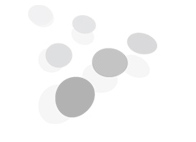Custom notification on Field Service Mobile Application
Client Overview:
Our client, an innovative organization focused on enhancing operational processes, identified the need for a notification on the Mobile App, whenever a work order is booked for resource.
The Challenge:
The client wanted his resource/technician to get notification on the Field Service Mobile App when the work order is assigned to a resource using schedule board or by direct methods. The challenge was to send notification to resource only when a booking was assigned to him.
The Solution:
To tackle the challenge, we designed and implemented a custom Power Automate flow to automate the process and ensure timely communication between the booking system and users. The flow was structured as follows:
- Trigger: The flow is initiated when a bookable resource booking is created. This ensures that the process starts automatically, eliminating the need for manual intervention.
- Retrieve Bookable Resource: The flow first retrieves the details of the associated bookable resource (e.g., room, equipment, or personnel) linked to the booking, ensuring that the correct resource is identified.
- Fetch User Details: Next, the flow retrieves the user details related to the booking, including relevant information such as the user’s name, contact details, and any other personalized data needed to send the notification.
- Send Notification: The flow then sends a notification to the user’s app. This notification includes all relevant booking information, ensuring the user is informed promptly about the status of their booking.
- Seamless Communication: The flow guarantees that the user is kept up to date with real-time notifications, enhancing their experience and reducing the chances of missing important updates.
This automated flow streamlined the process, improving efficiency, communication, and user satisfaction.
Other features:
- Real-Time Status Updates: Notify users about the real-time status of their appointments or service requests, such as when a technician is on their way, when work is starting, or when it’s completed.
- Location-Based Notifications: Trigger notifications based on the user’s or technician’s location, such as when the technician is nearby or when the user should prepare for the service.
- Service History Updates: Alert users about updates to their service history or when a follow-up action is required on past service requests.
- Customization and Personalization: Allow users to set preferences for types of notifications they wish to receive, adjusting based on urgency or relevance.
Result:
The automated notification system improved communication, boosted efficiency, and enhanced customer satisfaction. It streamlined workflows, reduced delays, and led to cost savings, ultimately strengthening the client’s competitive edge.
